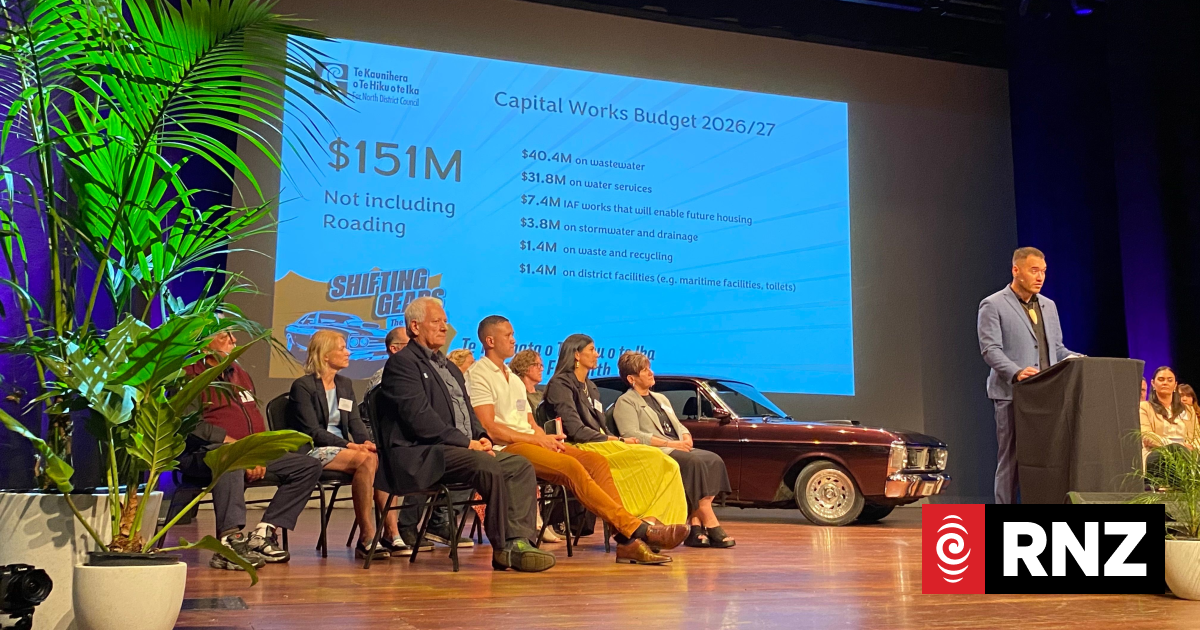Contractor Jimmy Daisley says it’s time Whangārei District Council pays the $6.1 million a High Court has ordered it to pay him. Photo / Michael Cunningham
A digger driver owed $6 million by his local council after an epic 18-year fight for justice has asked the High Court to sell the local authority’s offices after it missed a critical deadline for
paying the court-ordered sum.
Jimmy Daisley, 69, told the Herald on Sunday he and the Whangārei District Council signed an agreement in mid-December to pay him some of the $6m awarded by the High Court.
The balance – a significantly larger chunk – was to be paid into his lawyer’s trust account, where it was to be held until after the appeal later this year.
The council paid some of the cash directly to Daisley, but the balance never appeared.
Documents show a charging order was filed with the High Court at Whangārei on October 12 and stated: “The Court orders that your estate, right, title or interest in possession … [in] 7 Rust Avenue is charged with the payment of the amount for which the entitled party, Malcolm James Daisley, has obtained judgment”.
Daisley explained: “The deal was, I take the charging order off if they pay the money. They paid a portion of what’s owed. They reneged on the payment, so the charging order stayed.”
Daisley – who has previously described the council as “absolute low-life mongrel bastards” – said his lawyers had now asked the High Court to act on the charging order and to sell the council headquarters.
The 2.4-hectare site includes the city’s library, the Forum North entertainment facilities and the council offices. Council records show theland and buildings have a value of $20m.
Advertisement
Daisley said: “They can stop the sale tomorrow by paying the money into a trust account. [The charging order] only comes off when they pay the full amount.”
The order breaks down the debt of $6,184,555.70 into the $4.23m the council was ordered to pay, plus $2m of costs and interest.
/cloudfront-ap-southeast-2.images.arcpublishing.com/nzme/74MC25D3RVFJBC5YUOCJG7GXMA.JPG)
The cost of getting the charging order added to the bill increased the council’s debt by $917 – roughly the amount Daisley reckons the debt grows through interest with every day it is not paid.
Daisley’s lawyer Don MacRae said that in his view, the council needed to “come to the table” to prevent the sale of its building.
“Under the agreement, they were to pay before Christmas, and they haven’t done that.”
Council chief executive Simon Weston said ongoing legal proceedings made it difficult to comment in detail, although it wanted to “explain complicated aspects of the situation”.
“In October 2022, Mr Daisley registered a charging order over Forum North to secure the debt owing to him under the High Court judgment that is under appeal.
“In December, a part-payment was made to Mr Daisley, and negotiations are taking place over the balance of the judgment sum.”
Advertisement
Daisley and the council’s dispute goes back to 2004, when he bought a property in rural Northland on which there was a working quarry that had been mined for decades.
Early the next year, Daisley was hit with an order from the council to stop quarrying without a resource consent – an order that was followed by other abatement notices, rejection of his application for a resource consent and then, in 2009, enforcement proceedings in the Environment Court.
/cloudfront-ap-southeast-2.images.arcpublishing.com/nzme/X6EQ3BXUJNFGLP2XFQSS6DVXSI.JPG)
His inability to work the quarry and deal with enforcement action led to financial difficulties, forcing him to sell the land.
Then, in 2009, a lawyer hired to defend the enforcement action visited the council offices and carried out an archive search of the property record, revealing a consent from the 1980s that was still valid and did not limit what could be taken from the quarry.
Justice Kit Toogood KC, who heard the case, found that every time Daisley asked the council about “the existence of a resource consent, the council denied that a resource consent existed and insisted that Mr Daisley’s quarrying was unlawful”.
Daisley told the Herald the discovery didn’t end his problems – in May 2011, the new owner was granted permission to mine the quarry, even though the council persisted with its enforcement action against him until July 2011.
Toogood found in Daisley’s favour and ruled that the council was “guilty of misfeasance in public office through recklessly misinforming Mr Daisley and others about the existence of the consent and in failing to take steps to make amends after the consent was found”.



